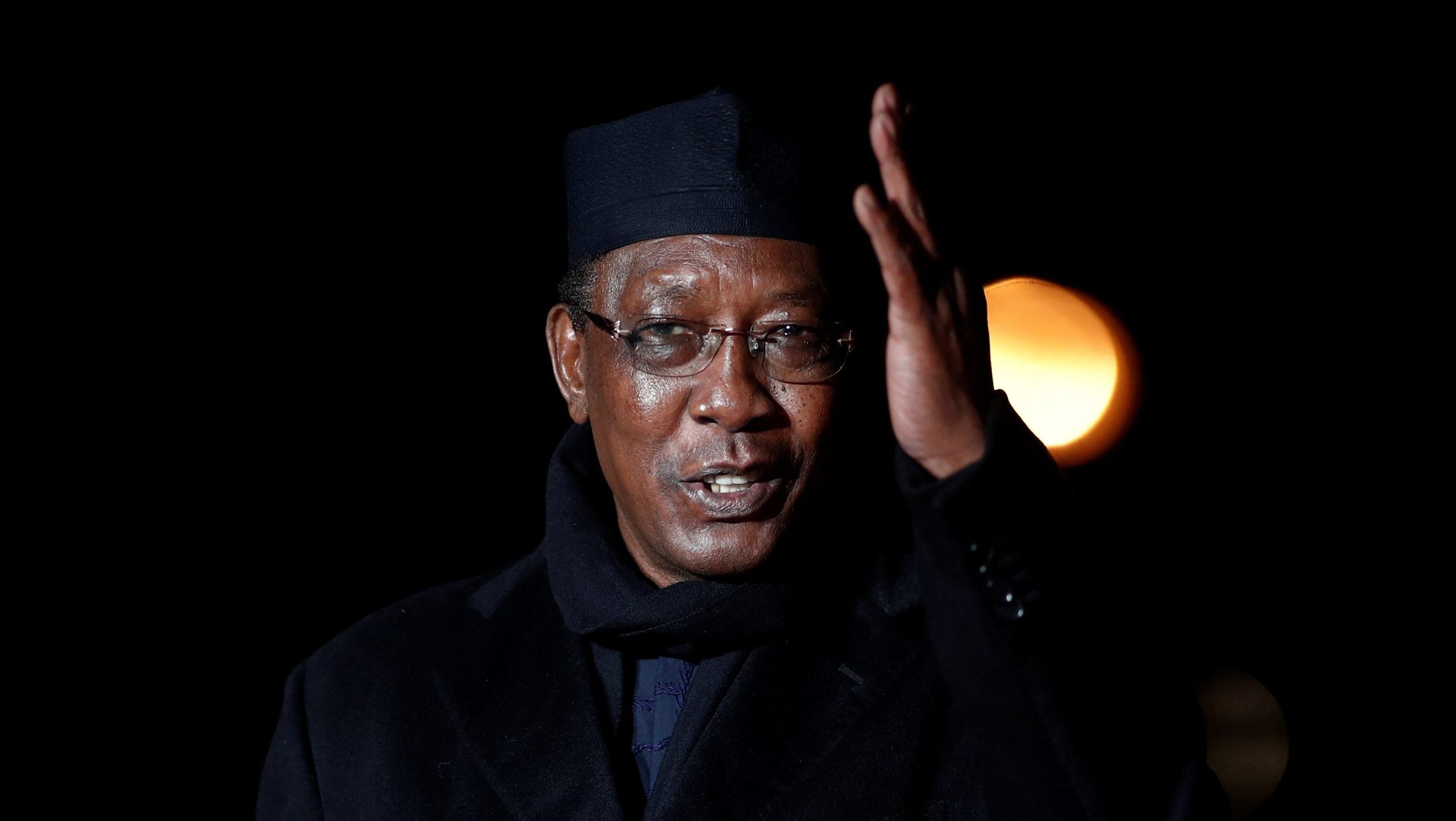After a record 16-month ban, this president has unblocked social media access
After a year, three months, and 17 days, the Republic of Chad finally lifted restrictions on accessing social media outlets.


After a year, three months, and 17 days, the Republic of Chad finally lifted restrictions on accessing social media outlets.
President Idriss Deby on Saturday (July 13) announced access will be restored to blocked platforms including WhatsApp, Twitter, Instagram, YouTube, and Facebook. Deby said the government had restricted access to electronic communications for “security reasons” and in “a context of terrorist threats.” The declaration brought to an end a 16-month blackout, which activists and consumers described as frustrating, violating human rights, and harming the nascent digital ecosystem.
The social media blackout began on March 28, 2018, following a tense political moment when Deby was pushing plans that would see him rule the central African country until 2033. The 67-year-old leader came to power in a coup in 1990 and has survived numerous bids to depose him. A largely semi-desert and landlocked nation, Chad is one of the poorest countries in the world with austerity measures introduced by Deby’s administration leading to repeated protests and paralyzing the public sector.
It is not yet clear why authorities decided to lift the ban now in a country where internet penetration already remains low. But activists say legal action along with international campaigns to end the digital blackout might have helped shift the situation towards a positive conclusion.
The Paris-based Internet Sans Frontières, for instance, called on supporters to participate in protests in Paris and N’Djamena and to use the hashtag #Maalla_Gatétou (Chadian Arabic for “Why did you cut off”) to share their experiences. The groups also helped finance [French] the installation of virtual private networks so that activists and journalists could bypass censorship and share their thoughts.
Attention was also drawn to the complicity of foreign internet providers like Swedish firm Millicom and how they were violating their commitments [in Swedish] to United Nations mandates for free expression. (Last March, Millicom sold off its operations in Chad to Maroc Telecom.)
But ultimately, Deby’s decision “simply catches up with the reality that keeping Chadians offline is as bad for his government’s image as it is for the rights and prosperity of the general public,” says Alp Toker, director of internet monitoring group NetBlocks.
Chad isn’t the only African country that has cut off access to social media in the past year. DR Congo, Sudan, Liberia, and Benin are some of the states that have blocked well-used messaging platforms including WhatsApp during elections or anti-government protests.
As the shutdowns intensify, young tech-savvy populations are resisting them and devising ways to circumvent them. In Sudan, lawyer Abdel-Adheem Hassan won a case in June against telecoms operator Zain which blocked internet access following orders from military rulers.
Abdelkerim Yacoub Koundougoumi, the central Africa director at ISF, says the government, telecommunication operators, and the Chadian civil society must work to reduce the prices and increase the quality of digital services: “Internet should not be used to serve political interests.”
Sign up to the Quartz Africa Weekly Brief here for news and analysis on African business, tech and innovation in your inbox